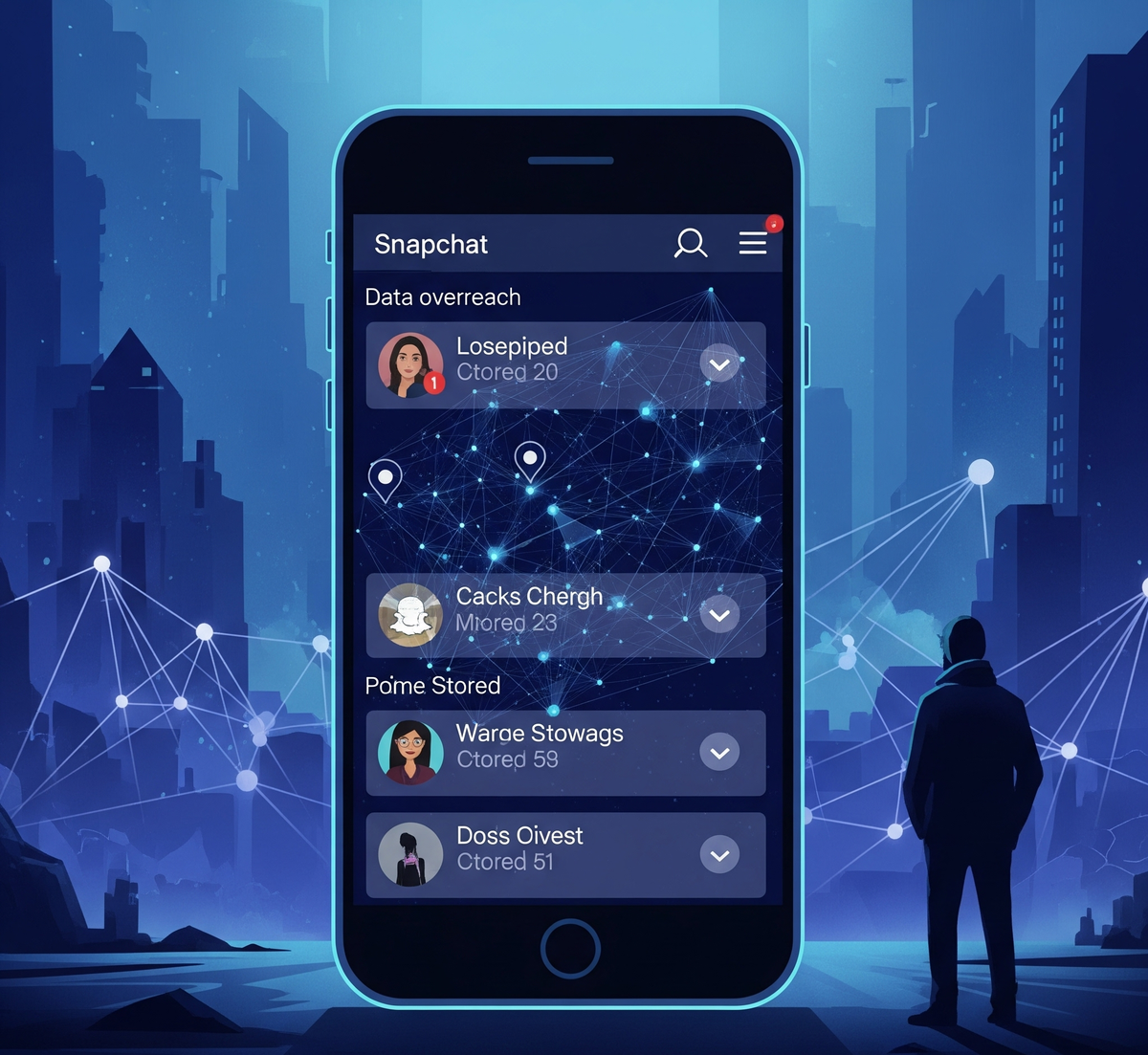Snapchat's New Surveillance Feature: Privacy Upgrade or Overreach?

[LOS ANGELES, CALIFORNIA] – July 3, 2025
Snapchat's newest update may have gone too far.
The once lighthearted app known for disappearing messages and quirky filters has ignited a firestorm with its latest rollout: a real-time friend tracking feature that lets users follow each other's exact movement throughout the day—minute by minute, street by street.
The response? Outrage. Confusion. Legal scrutiny.
Is this a game-changing safety upgrade—or a privacy invasion wrapped in a friendly UI?
What the Feature Does (and Why People Are Worried)
First discovered in beta versions in early June and rolled out globally on June 24, 2025, the feature goes beyond the old Snap Map. It now shows live user movement, directional travel, and allows alerts for "location exits."
"It felt like Find My iPhone met Black Mirror," said one user in a viral X post.
The real kicker? It defaults to "ON" if you've shared your location previously.
Key functions include:
- Continuous GPS updates every 15 seconds
- Motion trails of friends' walking or driving patterns
- Notifications for when a friend leaves a designated zone
Snapchat says it's for "enhanced safety, event coordination, and peace of mind."
Critics argue it feels more like surveillance.

Legal Experts Are Paying Attention
According to Justia, the Electronic Privacy Information Center (EPIC) has already flagged the update for potential violations under:
- California Consumer Privacy Act (CCPA)
- Illinois Biometric Information Privacy Act (BIPA)
- Children's Online Privacy Protection Act (COPPA)
"Real-time location tracking without granular user control could be seen as coercive," said Dr. Meena Thomas, a privacy law scholar at Cornell Law.
"This isn’t just about digital rights. It intersects with stalking, abuse, and coercion cases," she added.
Archive.org Shows Their Wording Changed Subtly
A review of Snapchat’s policy change timeline via Archive.org shows that the app made minor updates to its Privacy Center in May 2025, removing the line: *"We never share your exact location without your explicit input."
Instead, it now says: *"Your location may be shared with friends if enabled by prior settings."
That shift in language is what has attorneys calling foul.
Google Trends: Public Interest Spiked
Google Trends shows that the term "Snapchat surveillance 2025" peaked on June 26, just two days after the global rollout.
Top locations searching the term:
- United States
- United Kingdom
- Canada
- Australia
Breakout related queries:
- "turn off Snapchat tracking"
- "Snapchat live location lawsuit"
- "Snapchat stalking cases 2025"
Voices from Threads and X
"My ex can now literally watch me move house to house. WTF, Snap?" —@overitonline
"I get that this is for safety... but for who? The stalker or the victim?" —@misusedtech
"Snapchat just became a real-time ankle monitor with Bitmojis. Cool cool cool." —@digitalsatire
Others, however, see it as a plus:
"This helped me keep tabs on my teen while she was on a field trip. I’m all for it." —@safeparent2025
The Platform's Defense
Snap Inc. released a brief press statement on June 27:
"Our mission is to empower communication between close friends. The real-time map update was developed with feedback from parents, educators, and community moderators. All users can toggle sharing off or modify zones."
Yet many argue that opt-out privacy settings are not enough.
"What Happens Next?"
Several U.S. senators, including Sen. Amy Klobuchar, have requested an FTC inquiry into Snap’s data practices.
A bipartisan House committee is also drafting an App Surveillance Regulation Bill, proposing mandatory opt-in for real-time tracking and stricter age verification requirements.
At the same time:
- Digital rights groups are circulating petitions to halt the feature
- Class action rumors are spreading on Reddit law threads
- Meta and TikTok are watching closely, potentially halting similar updates of their own

Final Verdict: Feature or Flaw?
This update may have been marketed as a safety upgrade, but in a time where digital consent, real-world safety, and algorithmic control are hot-button issues, Snapchat may have misread the room.
Is it a convenience, a tool, a risk—or all three?
"Apps shouldn't assume that proximity equals permission," said Dr. Thomas. "Designing for safety means protecting the vulnerable, not tracking everyone."
Snapchat now faces a clear choice: double down, or course-correct.
Call to Action: Should Snapchat regulate its live-tracking features more tightly? Let us know your take using #SnapPrivacy2025.
Discussion Question: Do you feel safer or more exposed when social apps track your location in real-time?
Sources: Google Trends, Archive.org, Justia, Threads/X, Snap Inc. Press Releases



